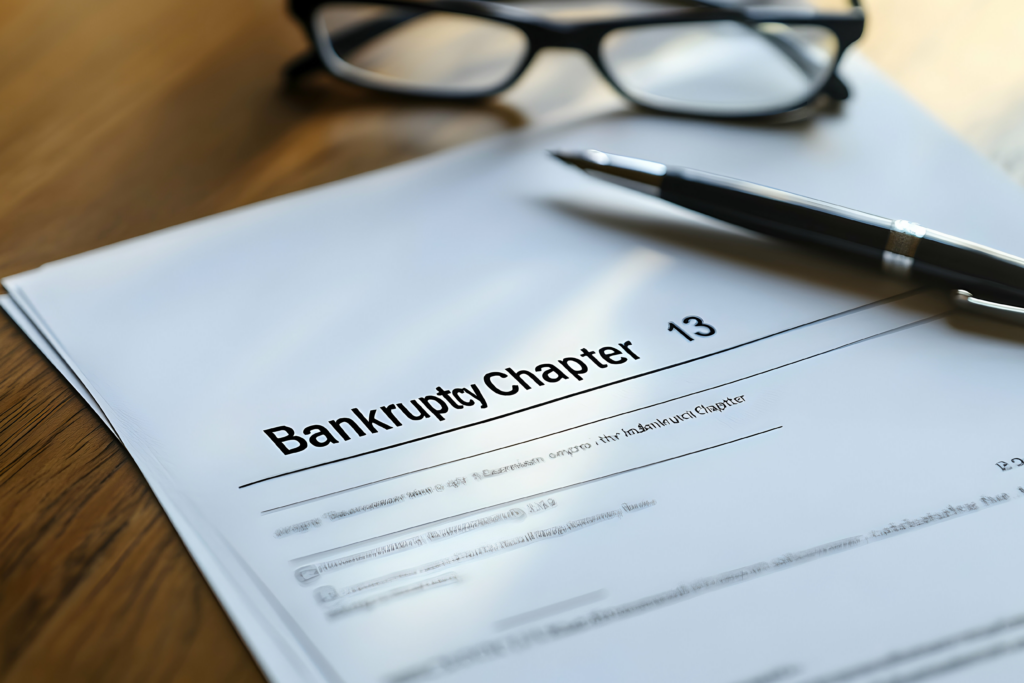Chapter 13 bankruptcy offers debtors an opportunity to reorganize their debts into a structured repayment plan over 3 to 5 years. However, the journey through Chapter 13 is not always smooth—some cases end in dismissal, while others successfully reach completion and discharge debts.
Understanding the implications of both outcomes, especially what happens to any funds held by the bankruptcy trustee, is crucial. This article will provide a detailed overview of Chapter 13 dismissal refunds, what to expect if your case is dismissed, and the steps to take after completing your repayment plan.
What is a Chapter 13 Dismissal?
A Chapter 13 dismissal occurs when the bankruptcy court ends the case without discharging the debtor’s debts. There are two main types of dismissals: involuntary and voluntary.
Involuntary Dismissal
Involuntary dismissals often occur when the debtor fails to comply with the requirements of the bankruptcy plan. Common reasons include:
Missed or late payments to the trustee.
Failure to submit required documents (e.g., tax returns or financial reports).
Non-compliance with court hearings or deadlines.
Job loss, illness or other hardships that make payments unaffordable.
When a case is dismissed involuntarily, the automatic stay, which protected the debtor from creditor collection efforts, is lifted. This allows creditors to resume collection activities, including lawsuits, wage garnishments, or foreclosure.
Voluntary Dismissal
Some debtors choose to voluntarily dismiss their Chapter 13 case, often because their financial situation has improved, or they opt for other debt management strategies, such as switching to Chapter 7 bankruptcy.
Chapter 13 Dismissal Refund: How Does it Work?
If a Chapter 13 case is dismissed before completion, the bankruptcy trustee may hold funds that have not yet been distributed to creditors. These funds are generally refunded to the debtor, minus administrative fees and trustee costs.
Refund Process and Timeline
The refund process can take several weeks. The trustee must close out the case and submit final reports to the bankruptcy court before any unused funds are returned. It’s essential for debtors to contact their bankruptcy attorneys to track the refund process and understand potential delays.
What Happens After Your Chapter 13 Plan is Paid Off?
When a Chapter 13 plan is completed, the debtor receives a discharge for most unsecured debts. Here’s what to expect after paying off your bankruptcy plan:
Discharge of Debts
Once the repayment plan is completed, most eligible debts are discharged. This includes unsecured debts like credit cards and personal loans. However, certain obligations, such as student loans, child support and alimony, are typically not discharged.
Managing Remaining Obligations
If the debtor has long-term secured obligations (e.g., mortgage or car payments), they must continue making payments even after the bankruptcy is discharged. Failure to do so could lead to foreclosure or repossession, as the court no longer provides protection.
Comparing Dismissal and Plan Completion: Impact on Your Finances
Chapter 13 Dismissal
When a case is dismissed, it’s treated as if the bankruptcy filing never happened. This means:
Creditors can resume collection activities immediately, including wage garnishments, repossessions or foreclosure.
Any progress toward debt reduction made during the repayment plan is lost.
Some debtors may need to negotiate with creditors for payment plans or settlements.
If the financial situation has worsened, the debtor might consider converting the case to Chapter 7 bankruptcy or re-filing under Chapter 13 with a new plan.
Successful Plan Completion
On the other hand, completing a Chapter 13 plan provides long-term financial relief:
Discharged debts give the debtor a fresh financial start.
Creditors are permanently barred from pursuing discharged debts.
The debtor can focus on rebuilding their credit and savings.
Key Actions After Dismissal or Payoff
Actions After Dismissal
If a Chapter 13 case is dismissed, the debtor has several options to regain control:
Negotiate with Creditors: After dismissal, creditors may be open to settlements or payment plans. It’s advisable to seek the help of a bankruptcy attorney to ensure fair terms.
Refiling Chapter 13: If the circumstances that led to the dismissal have changed, the debtor can refile for Chapter 13 with a new repayment plan.
Convert to Chapter 7: If Chapter 13 is no longer feasible, switching to Chapter 7 bankruptcy may offer a quicker resolution through debt liquidation.
Wrapping Up
Navigating Chapter 13 bankruptcy may be challenging, whether the case ends in dismissal or successful payoff. If your case is dismissed, quick action—such as negotiating with creditors or refiling—may help you regain control.
If you’ve completed your repayment plan, it’s time to rebuild your credit and secure your financial future. In either scenario, consulting with a bankruptcy attorney and using financial counseling services can be essential steps toward achieving long-term stability.
Understanding what happens during and after Chapter 13 bankruptcy will prepare you for the next chapter in your financial journey. Whether you’re receiving a dismissal refund or celebrating the discharge of your debts, staying proactive is key to building a debt-free future.
The content provided is intended for informational purposes only. Estimates or statements contained within may be based on prior results or from third parties. The views expressed in these materials are those of the author and may not reflect the view of National Debt Relief. We make no guarantees that the information contained on this site will be accurate or applicable and results may vary depending on individual situations. Contact a financial and/or tax professional regarding your specific financial and tax situation. Please visit our terms of service for full terms governing the use this site.

